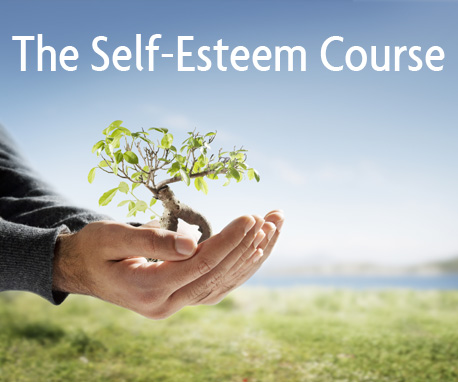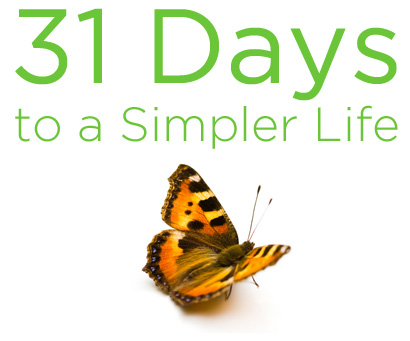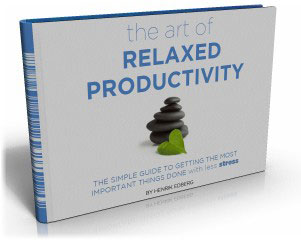 “Three things in human life are important: the first is to be kind; the second is to be kind; and the third is to be kind.”
“Three things in human life are important: the first is to be kind; the second is to be kind; and the third is to be kind.”
Henry James
“Nobody can go back and start a new beginning, but anyone can start today and make a new ending.”
Maria Robinson
Being kind to yourself in everyday life is in in my experience one of the best things you can do for yourself.
Life will become lighter and your relationships will most likely improve.
You will feel happier overall. And your self-esteem and your sense of deserving good things in life will go up. It’s one of my absolute favorite topics and one that I have created my most popular program around in The Self-Esteem Course.
But it is also one thing that is often neglected or something some may feel guilty about doing.
To make a positive change with that simply start a new habit today. One of kindness and love towards yourself. You can find 10 of my favorites among such habits in this article.
1. Invest in yourself.
Spend 15-30 minutes in the morning or evening with reading, listening to or watching material that uplifts you, that helps you to understand yourself and the world or that helps you to live a better life.
Then, if possible, take one small action on what you have learned.
2. Find the truth and exception when an inner critic or outer critic attacks.
Your own inner critic may not always say nice things about you. People around you may attack you or try to bring you down to serve one of their own needs.
If you or someone else does this, ask yourself this question:
What is the exception to this though?
This is very effective to change your train of thoughts, to find the truth and to not get down on yourself.
For example, if you or someone says that you are not doing a good job in school then you can ask the question and find answers that tell you that isn’t really true. If you question the attack and look for the exception you may for instance see that you are actually doing a good job in most of your courses, but may be a bit unfocused and lazy in math and geography.
That is a more nuanced truth that helps you rather than just brings you down.
3. Unstress tonight.
Take a long bath and read something to escape. Or work out. Or talk to someone about something that is on your mind and let it all out.
Set aside 30 minutes or more and be kind to your body and mind by letting the tensions and stress out.
4. Take just 2 minutes in the morning or evening to appreciate yourself.
Create a kinder and more balanced self-image by making it a quick and daily habit to appreciate yourself.
Here’s what you do:
Sit down with a journal on your smart phone, computer or in paper form. Ask yourself:
What are 3 things I can appreciate about myself?
It could be that you are a good listener or are doing well with your hobby right now. Or that you have a love for animals, people or music.
It doesn’t have to be big things either. Maybe just that you flossed or brushed your teeth this morning. The important thing is to appreciate yourself both for the little things and the things you may take for granted and not just for reaching a big milestone once in while.
5. Mediocre day? Take one small step forward towards something positive.
If your day feels mediocre or just sort of depressing then take one small step towards something positive to breathe new hope and optimism into your day and week.
- Book or research a trip you want to take.
- Setup a dinner or a cup of coffee with a good friend.
- Look into how you can grow in your career to get new and exciting stuff to do.
- Try a new hobby.
6. Be kinder towards others.
The way you think about and treat others is often the way you think about and treat yourself. So choose to be kinder towards others to, over time, become kinder and more understanding towards yourself too.
For example:
- Let someone into your lane while driving.
- Encourage a friend or a family member when they are uncertain or unmotivated.
- Just be there and listen as you let someone vent.
7. If you stumble, be your own best friend.
Don’t beat yourself up, that will erode your self-esteem. Be a kind and supportive friend to yourself instead.
Ask yourself: How would my friend/parent support me and help me in this situation?
And then do things and talk to yourself like he or she would.
And remember to ask yourself what you can learn from your stumble and if there is an opportunity in this situation. Then take that new knowledge you gain and move forward once again.
8. Take a laugh-break.
Take 5-10 minutes in the middle of your day or if that is not possible then use your morning or evening. Use your smart phone, computer or TV and watch a funny clip or a half an episode of a sitcom, read a funny book or comic or listen to a podcast you know makes you laugh.
I have been using this one for over a decade, even before I got seriously interested in personal development. I find it to be one of the most effective things I can do to recharge my energy and optimism and to release inner tensions.
9. Remember, the future is still in your hands. And it is never too late to change.
Don’t get stuck in thought loops that just go round and round about what you could have done or what went wrong.
Think about what you really want in the rest of your life instead.
- Better health?
- A great relationship?
- New challenges in your career?
Now, what are a few small steps you can take towards that goal?
Take one of those steps today. Then another tomorrow.
10. Simply remind yourself of why it is smart to be kind to yourself.
By knowing the reasons why it is smart to be kinder to yourself it, in my experience, becomes easier and easier to be kind to yourself and to take the time for it every day.
By reminding yourself of benefits such as better real life results, more perseverance, higher self-esteem, more inner happiness and stillness, more positive relationships with yourself and with other people it becomes easier to stay kind to yourself through life’s natural ups and downs.

 This 12-week course is my most popular program so far.
This 12-week course is my most popular program so far. The Smart Social Skills Course is all about improving your social skills and relationships.
The Smart Social Skills Course is all about improving your social skills and relationships. The Invincible Summer is an 8-week course in developing a resilient outlook of optimism.
The Invincible Summer is an 8-week course in developing a resilient outlook of optimism. This course is designed to make you think about how you live your life.
This course is designed to make you think about how you live your life. The Art of Relaxed Productivity is all about becoming a more focused person and getting more of the most important things done with less stress.
The Art of Relaxed Productivity is all about becoming a more focused person and getting more of the most important things done with less stress. “Three things in human life are important: the first is to be kind; the second is to be kind; and the third is to be kind.”
“Three things in human life are important: the first is to be kind; the second is to be kind; and the third is to be kind.”
